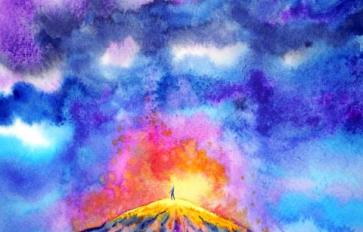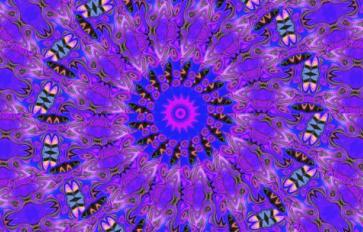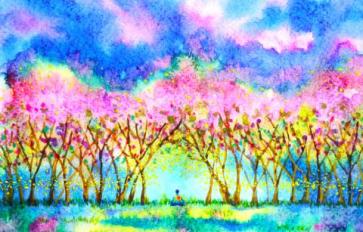
The truth has been obscured by ideology. Not a particular ideology, rather ideology in and of itself.
Ideology is essentially any form of pathology that is based in a belief system. It is that which arises when we identify with our beliefs. For instance, let’s say I identify as being a republican/democrat, or a religious person, or an artist, then every thing I perceive will be seen through the lens of that particular identity. This is ultimately divisive and destructive, for the narrative, the storyline, the fantasy is then given more weight than the truth.
Truth cannot be discerned when we pathologize our viewpoints, which is to say when we narrow our perception to a particular set of ideals. When our awareness is entirely consumed by ideals, then there is little room for awareness as such, and truth can only be come upon by a pure movement of awareness.
We learn through observation. We do not learn through ideation. To identify with an idea is to snuff out our capacity to observe. The idea is secondary to observation in regards to truth, but surely this is not the way in which most people approach this.
Ideology is essentially the crystallization of myriad sentiments, notions, and attitudes packaged as one central narrative. When the narrative is that which drives us, then whatever we observe in the world will be put in the context of that narrative. Herein we are blind, because the narrative has come to take credence over our capacity to observe. Objectivity cannot exist here, and without a sense of objectivity there can be no discerning of truth.
The ideologue is confined to illusion, regardless of what they believe. Illusion is that which comes into being when we capitulate to ideation, which is to say when we give total preeminence to a series of ideals. Ideals do not engender truth, nor do they engender the devices necessary in discerning truth. It is only when ideals come to be made subordinate to the felt presence of immediate experience, observation as such, that they are of any real use.
How, then, might we free ourselves from this prison of ideology? We accomplish this through empowering our innate intuitive and observational capacities. When we cease to identify with ideals (which is a direct correlation of being aligned with the present moment) we then transcend this very limiting field of ideology. It is one thing to have ideals, and something entirely different to identify with those ideals. When we identify with an ideal, we are essentially making ourselves the same as that ideal, investing our intimate sense of self in that ideal, and thereby when the ideal is attacked, our sense of self comes under attack with it.
We are asking of you to bring your attention to the manners through which you identify with your ideals, for this is the benchmark of the poison that is ideology. If we may come to see with total clarity that which we truly are – beneath our thoughts, beneath our ideals, deeper than our beliefs – then we invariably dissolve our propensity to be ideologically driven. Herein we predispose ourselves to best discerning what is true.
This is the essence of inquiry. To inquire is to give way to the authority of one’s own experience, rather than an authority detached from oneself. When credence is allocated to the felt immediacy of our own experience, then we make way for the unveiling of truth. It is only the inquisitive mind that is capable of being aligned with truth, whereas ideology risks leading to the evocation of fallacy. To be a truth seeker is to be a perpetual inquirer -- always investigating, always exploring new possibilities, always considering different outlooks. We cannot know the truth unless we allow ourselves to objectively examine all things, and surely this is the essential characteristic of the inquisitive mind.
Inquiry is immensely more valuable than ideology. Inquiry is the only method through which we might know what is objectively the case, whereas ideology is really a form of self-satisfaction and in that has no concern with truth. This is the case because ideals are not inherently grounded in reality. They are merely abstractions to be played around with. The movement of ideology is no more than a kind of daydreaming, and we have come to take these fantasies as facts. Until we tap into our innate inquisitive abilities then we remain living in these fantasies.
There is a path to truth, and the walking of this path is predicated upon the acknowledging of the depth and power of our own experience. Self-empowerment is the path to truth.








